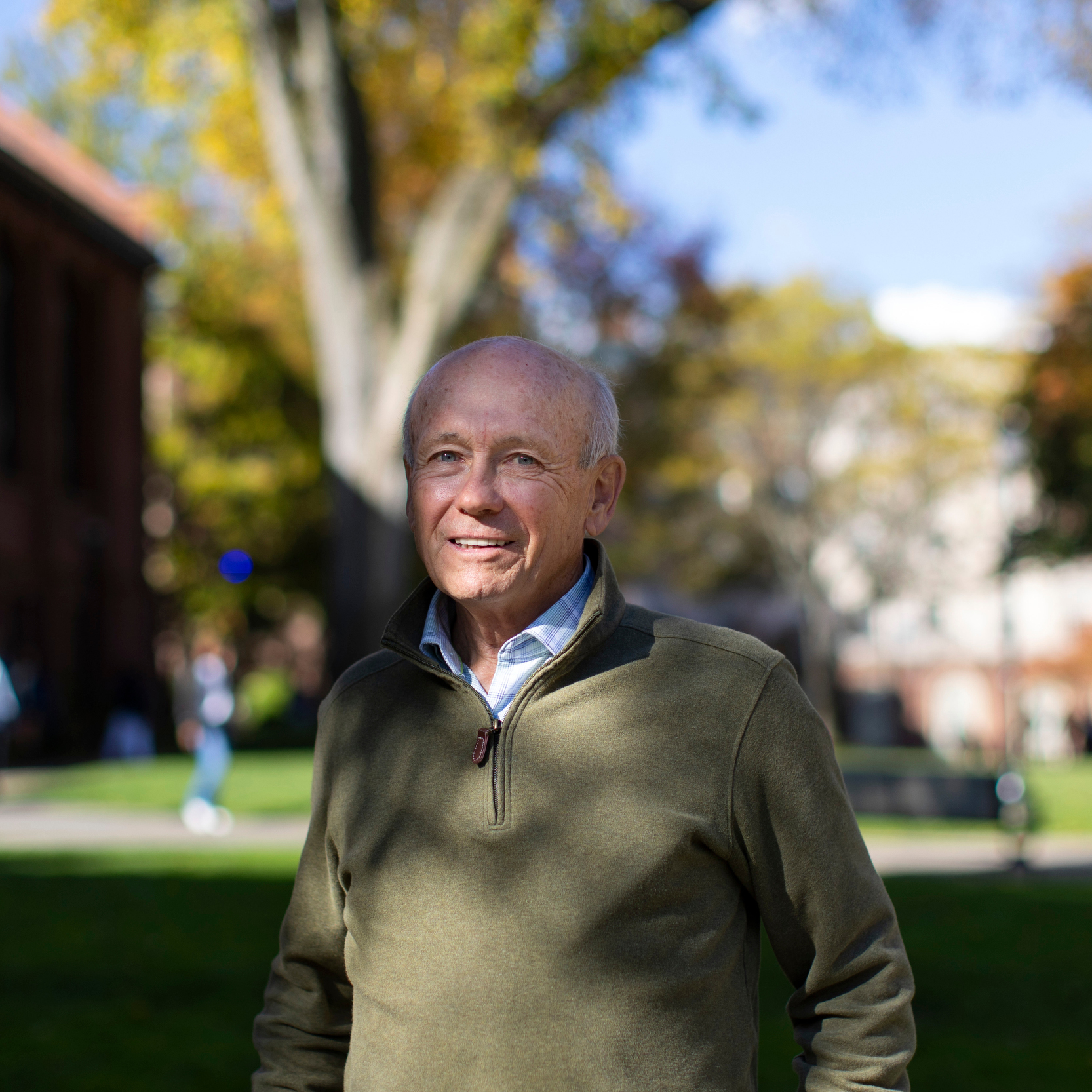PROVIDENCE, R.I. [Brown University] — The Royal Swedish Academy of Sciences has awarded Brown University Professor Emeritus Peter Howitt the Nobel Prize in Economic Sciences for “for the theory of sustained growth through creative destruction.”
Howitt is a professor emeritus of economics at Brown, where he joined the faculty in 2000. He shares one half of the Nobel Prize with Philippe Aghion of the Collège de France and INSEAD in Paris and the London School of Economics and Political Science in the United Kingdom; the other half was awarded to Joel Mokyr of Northwestern University.

Information for Media
Video: Nobel News Conference with Peter Howitt
Biography and Background
Curriculum Vitae
Press Release from the Royal Swedish Academy of Sciences
Scientific Background on the Nobel Prize in Economic Sciences 2025
“Over the last two centuries, for the first time in history, the world has seen sustained economic growth,” the Royal Swedish Academy of Sciences stated in its news release. “This has lifted vast numbers of people out of poverty and laid the foundation of our prosperity. This year’s laureates in economic sciences, Joel Mokyr, Philippe Aghion and Peter Howitt, explain how innovation provides the impetus for further progress.”
Brown University President Christina H. Paxson congratulated Howitt for being recognized with the world’s highest prize for economics.
“We are proud and deeply honored that the work of Professor Howitt, one of our esteemed faculty, has received the international recognition of a Nobel Prize,” Paxson said. “At a time when the role of research in sparking innovation in new technologies is so prominent in discussions about our changing society, I’m sure that people around the world will appreciate learning more about Professor Howitt’s work, along with the contributions of the other prize winners.”
Howitt said that while he was aware of the influence his work with Aghion has had, he wasn’t expecting the Nobel committee to come calling.
“I didn’t bother to turn my phone on overnight,” Howitt said. “I have no champagne in the refrigerator. So this is all really quite a shock to me.”
He first learned of the prize through several calls from a reporter to his wife's phone.
“Someone had found a way to reach her,” Howitt said. “It was a number from Sweden. Oh, I said, I think you better answer.”
Howitt and Aghion studied the mechanisms behind sustained growth, specifically the ways in which new technologies can affect growth over time.
“The idea [is] that economic growth is driven by technological progress,” Howitt said. “Technological progress comes from new inventions and innovations that open up all sorts of possibility to make us all more productive, but at the same time as it produces these great benefits for most of society, it also generates a lot of harm for certain people whose human capital or physical capital is rendered obsolete by these new ideas.”